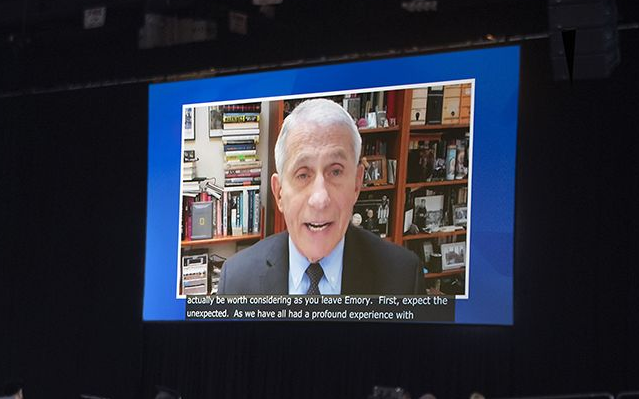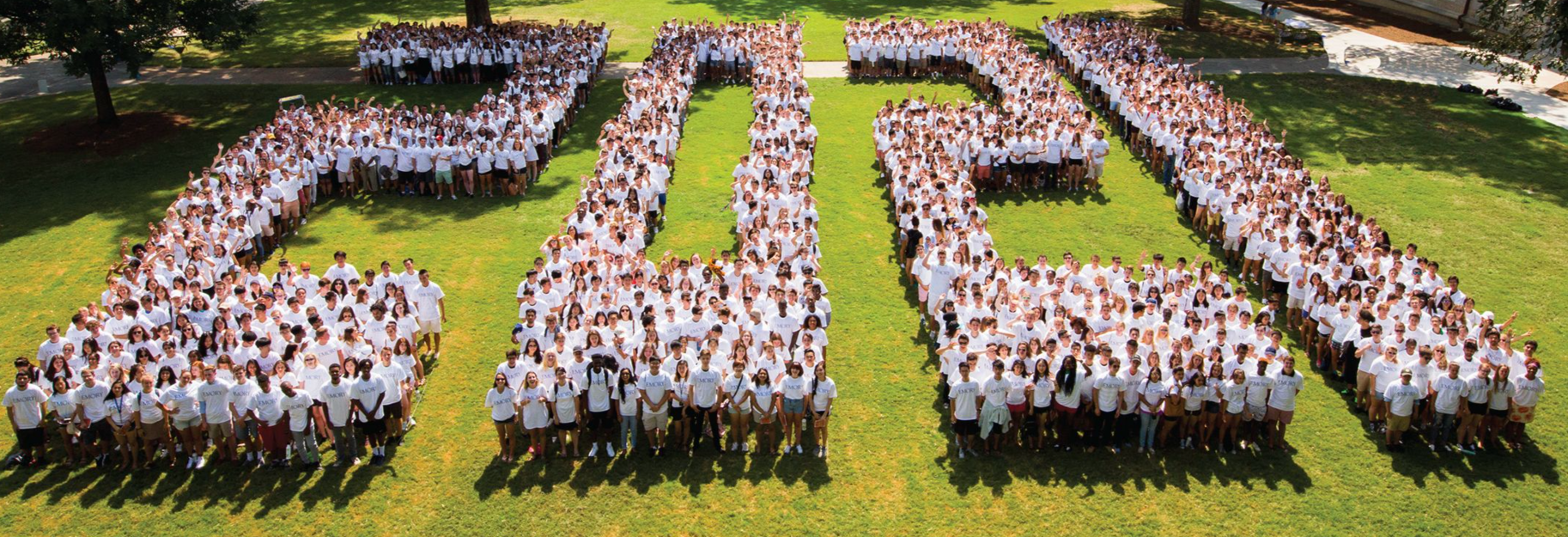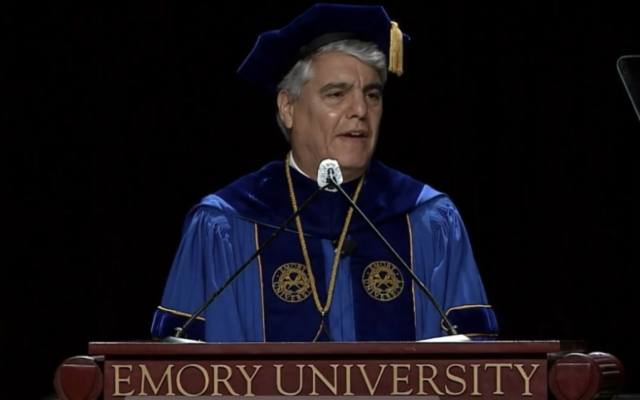Emory Graduates Past and Present
University creates separate ceremonies to honor this year’s graduates and those from 2020.
For the first time in its history, Emory University held two commencement ceremonies within days of each other for graduating classes from two different years.
For the class of 2020, the university invited back all of last year’s graduates to be able to experience their commencement ceremony in person May 15, something that wasn’t possible last year during the early months of the COVID-19 pandemic.
Several hundred students, including two medical graduates from last year, returned with family and friends for the event at the Georgia World Congress Center.
They heard from 2020 graduates such as Ben Sigal describe how they had spent a difficult year transitioning from a campus that was largely virtual to a world in a health care crisis.

Sigal, who is Jewish and an AEPi alum, described how his used his year after graduation to start a project that connected farms to food banks to help distribute fresh produce. “To date, we have delivered 100 thousand pounds of food; that’s equivalent to 60 thousand meals.”
It’s just the kind of work that the commencement speaker, noted civil rights attorney Bryan Stevenson, urged the graduates to consider.
“For those of you who are willing to stay hopeful, who are willing to do uncomfortable things in service of people in need, in service of promoting justice, in service of creating greater health and healing, this is a time of great opportunity.”
Stevenson founded the Equal Justice Initiative, which led to the creation in 2018 of the National Memorial for Peace and Justice in Montgomery, Ala. His work has been supported by the Arthur Blank Family Foundation, which premiered an HBO documentary here in 2019, “True Justice: Bryan Stevenson’s Fight for Equality” and created a teaching guide for students who wish to learn more about his racial justice campaign. Stevenson pointed out in his Emory address that America has “long needed to be a place where equality and justice prevail.”

Much the same message was part of the graduation ceremonies held separately for this year’s Emory arts and sciences graduates. The graduation speaker was Dr. Anthony Fauci, the nation’s chief medical adviser on the COVID-19 pandemic. Fauci, who had received an honorary degree from Emory in 2003, this year received the Emory University President’s Medal, one of only five persons to have been singled out in both ways.
In his remarks, he called the new graduates to use their experiences during the pandemic to fight societal divisions and create an “even better normal.”
He said, “Societal divisiveness is counterproductive in a pandemic. We must not be at odds with each other, since the virus is the enemy, not each other.”
Among the graduates who took his message to heart was Liza Byrne, who found in her work in Emory’s Jewish Studies program a new appreciation for helping others.
She is returning to her home in New York City to begin a job next month in a nonprofit that works to further the ties between educational institutions in Israel and the United States.
But she has been strongly aware of how difficult the past year has been as a student. All of the graduating seniors, she said, completed their studies virtually, with almost no personal contact in the classroom between themselves and their professors and fellow students.
In fact, the graduation ceremony was one of the few occasions this year where she personally interacted in a college setting.
Although she lived less than a half mile from the Emory campus, it was her apartment that became a substitute for her classrooms. What she experienced in her senior year was almost like living in a different world, she said.
“I always thought it was so strange that I would be in my bedroom one minute, sleeping or hanging out with my friends, and the next minute I would be in my bedroom doing class and focusing and taking a test. That was crazy to me because I never associated my house or my apartment with anything academic. So the fact that I hadn’t returned to campus for almost an entire year feels like a different memory.”
Although Emory was one of the few schools to provide separate graduation ceremonies for the two graduating classes, almost all of the area’s major universities, including Georgia Tech and the University of Georgia made special efforts to include last year’s graduates in their commencement programs this year.
The acknowledgment that each of them received in their respective schools was not unlike what Emory President Gregory Fenves had to say. Fenves, who is Emory’s first Jewish president, told the class of 2020 that they have already made an impact on the world.
“The past year has shown us that the time to act, to speak, to get involved, is now, and you have done that.”




comments